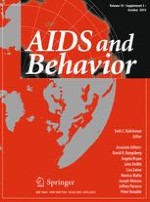Erschienen in:

01.10.2014 | Original Paper
Tailored Nutrition Education and Food Assistance Improve Adherence to HIV Antiretroviral Therapy: Evidence from Honduras
verfasst von:
Homero Martinez, Kartika Palar, Sebastian Linnemayr, Alexandria Smith, Kathryn Pitkin Derose, Blanca Ramírez, Hugo Farías, Glenn Wagner
Erschienen in:
AIDS and Behavior
|
Sonderheft 5/2014
Einloggen, um Zugang zu erhalten
Abstract
Food insecurity and malnutrition negatively affect adherence to antiretroviral therapy (ART) and are associated with poor HIV clinical outcomes. We examined the effect of providing household food assistance and nutrition education on ART adherence. A 12-month prospective clinical trial compared the effect of a monthly household food basket (FB) plus nutrition education (NE) versus NE alone on ART adherence on 400 HIV patients at four clinics in Honduras. Participants had been receiving ART for an average of 3.7 years and were selected because they had suboptimal adherence. Primary outcome measures were missed clinic appointments, delayed prescription refills, and self-reported missed doses of ART. These three adherence measures improved for both groups over 12 months (p < 0.01), mostly within 6 months. On-time prescription refills improved for the FB plus NE group by 19.6 % more than the group receiving NE alone after 6 months (p < 0.01), with no further change at 12 months. Change in missed appointments and self-reported missed ART doses did not significantly differ by intervention group.